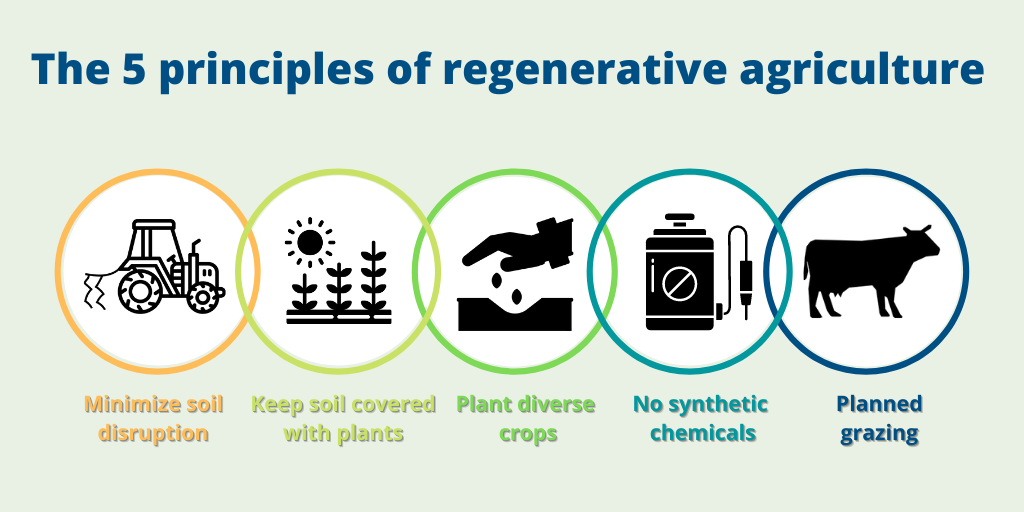Regenerative Agriculture
Regenerative agriculture is an innovative and holistic approach to farming and land management that focuses on improving soil health, biodiversity, and ecosystem resilience.
Unlike conventional agricultural practices that often lead to soil degradation and environmental harm. Regenerative agriculture aims to restore and rejuvenate the land while promoting sustainable food production.

One of the fundamental principles of regenerative agriculture is the emphasis on soil health. Healthy soil is the foundation of a thriving ecosystem and plays a vital role in nutrient cycling, water retention, and carbon sequestration.
Regenerative practices, such as cover cropping, crop rotation, and reduced tillage, help build soil organic matter. Increase microbial diversity, and improve soil structure, making it more resilient to extreme weather events and erosion.
Regenerative agriculture also emphasizes the importance of biodiversity. By diversifying crops and integrating livestock, farmers can create a balanced ecosystem that supports beneficial insects, birds, and other wildlife.
Biodiversity not only enhances ecological resilience but also helps control pests and diseases naturally, reducing the need for synthetic pesticides and chemical inputs.
Another key aspect of regenerative agriculture is the use of natural inputs and on-farm resources.
Rather than relying heavily on external inputs like synthetic fertilizers and pesticides, regenerative farmers focus on using compost, manure, and cover crops to enrich the soil and promote plant health.
This reduces the environmental impact of farming and contributes to a more closed-loop and sustainable system.
Furthermore, regenerative agriculture emphasizes the importance of integrated livestock management. Properly managed grazing can enhance soil health and plant growth while also providing a source of income for farmers.
Rotational grazing, where livestock are moved regularly to different areas. Allows pastures to rest and recover, preventing overgrazing and soil compaction.
In addition to its environmental benefits, regenerative agriculture also offers economic advantages. By reducing input costs and building healthier, more productive soils. Farmers can achieve greater long-term profitability and resilience to market fluctuations.
Conclusion
Overall, regenerative agriculture represents a transformative approach to farming that goes beyond traditional practices.
It not only promotes sustainable food production but also offers a powerful solution to address pressing environmental issues such as soil degradation, biodiversity loss, and climate change.
As more farmers and consumers embrace agriculture. There is hope for a more resilient and sustainable future for agriculture and our planet. 온라인카지노